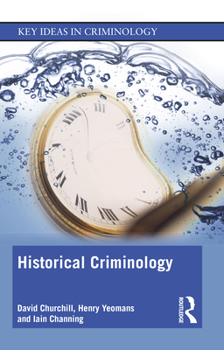Historical Criminology
Select Format
Select Condition 
Book Overview
This book sets an agenda for the development of historical approaches to criminology. It defines 'historical criminology', explores its characteristic strengths and limitations, and considers its potential to enhance, revise and fundamentally challenge dominant modes of thinking about crime and social responses to crime.
It considers the following questions:
What is historical criminology? What does thinking historically about crime and justice entail?
How is historical criminology currently practised? What are the advantages and disadvantages of different approaches to historical criminology?
How can historical criminology reshape understandings of crime and social responses to crime?
How does thinking historically bear upon major theoretical, conceptual and methodological questions in criminological research?
What does thinking historically have to offer criminological scholarship more broadly, and the uses of criminology in the public realm?
In this book, Churchill, Yeomans and Channing situate 'historical thinking' at the heart of historical criminology, reveal the value of historical research to criminology and argue that criminologists across the field have much to gain from engaging in historical thinking in a more regular and sustained way.
This book is essential reading for all criminologists, as well as students taking courses on theories, concepts and methods in criminology.





